Don’t leave without 75% off
Get a Mobilo Branded Card for $5 or a Custom Card for $10
Plus 90 days of Pro free.
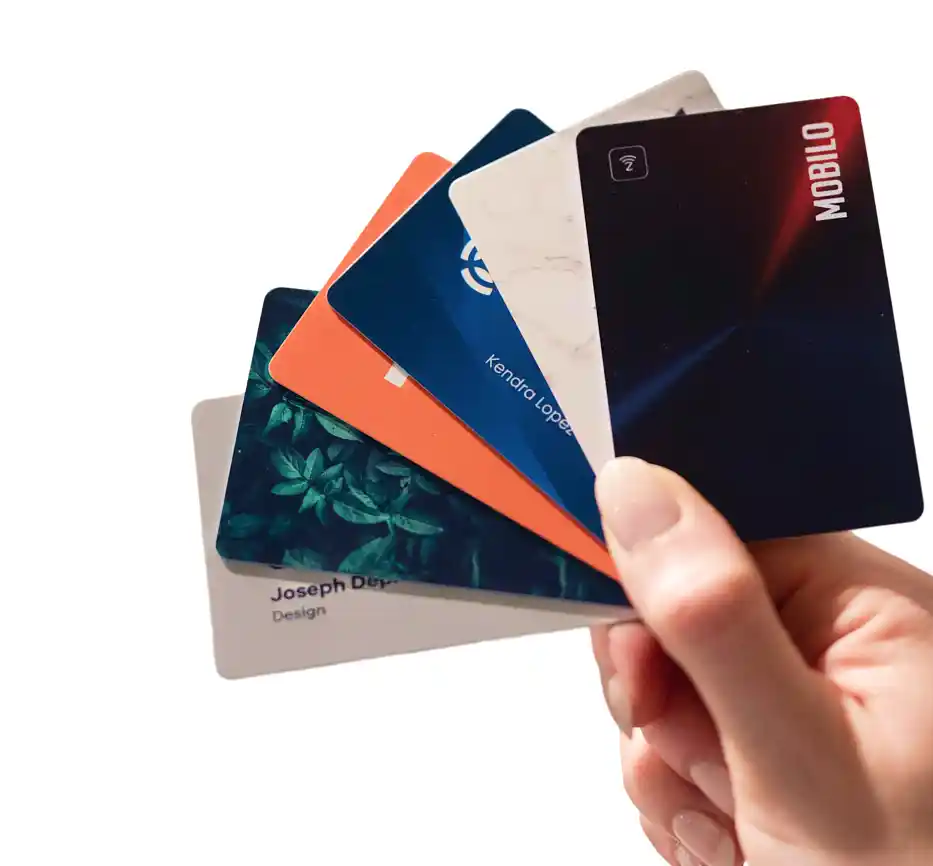
.avif)

Get a Mobilo Branded Card for $5 or a Custom Card for $10
Plus 90 days of Pro free.

.avif)

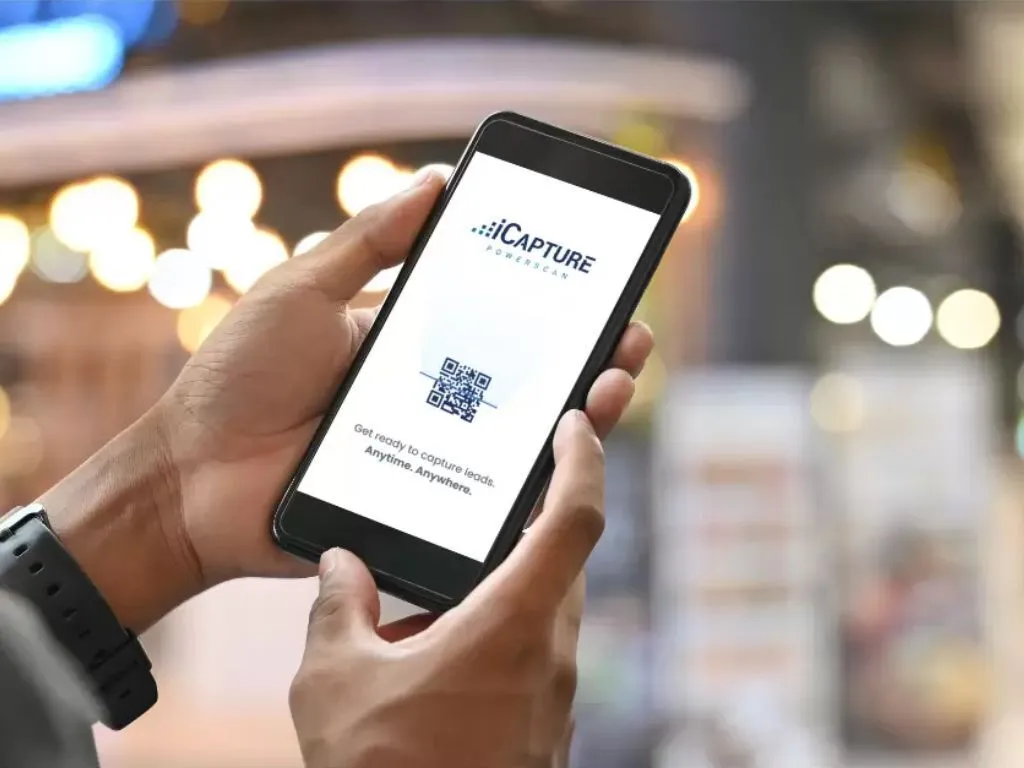
Exhibition lead capture has become one of the most effective ways to utilize NFC technology, transforming a simple tap into a contact that seamlessly moves into your sales pipeline. Picture a crowded trade show floor where paper cards get lost, and follow-up never happens. This article shows how to efficiently capture high-quality leads at trade shows using proven methods and apps, turning every exhibition into measurable business growth.
To efficiently capture high-quality leads at trade shows using proven methods and apps, turning every exhibition into measurable business growth, Mobilo’s digital business card helps you collect contact capture, qualify prospects at the booth, sync data with your CRM, and track analytics so your networking, lead generation, and event marketing deliver real ROI.

Capturing leads at trade shows is the single most effective way to convert event energy into a predictable pipeline and measurable revenue, because it turns anonymous interest into prioritized opportunities you can act on. When capture works, follow-up is fast, qualification is data-driven, and every metric from conversion rate to cost per lead becomes meaningful.
We treat trade shows as concentrated buying moments, not just social networking events. A large share of those interactions are with decision-makers, as 81% of attendees have buying authority.
Therefore, the difference between capturing a contact and losing one is often the difference between a closed deal and an expense line. A good capture provides the who, why, and context, enabling sales to prioritize outreach, marketing to segment post-event campaigns, and product teams to identify recurring requests.
When capture breaks down, the failure modes are predictable and painful. 80% of leads never receive follow-up, which explains why stacks of business cards rarely become a pipeline. This pattern is evident across both small pilots and enterprise programs.
Manual entry fragments data, response windows stretch beyond the moment of interest, and intent cools. It is exhausting to return from an event with pockets full of contacts and no consistent plan to convert them; that friction turns high-potential interactions into lost momentum.
We focus on a simple chain:
Capture speed matters because response time is a raw multiplier on conversion. Tagging leads by source and intent, assigning lead scores, and triggering native CRM workflows enables you to measure event conversion rates and attribute revenue to specific shows.
For programs that report outcomes quarterly, this approach turns trade shows from a marketing vanity line into a forecastable sales channel.
Most teams manage trade-show capture with business cards, badges, and spreadsheets because that workflow is familiar and requires no new approvals. As events scale, those familiar methods create fragmented data, duplicate entries, and hours of manual cleanup that could be spent selling.
Platforms like Mobilo provide NFC, QR, Apple NameDrop, widgets, and a card scanner with native CRM integrations, so teams find that taps become routed leads in seconds, data fields stay consistent, and manual follow-up workload drops dramatically.
If you host fewer than a dozen events and collect fewer than 100 contacts annually, a manual process can be effective. As soon as you run multiple teams, events, or regions, the failure point is the handoff.
A capture process that relies on paper or single-user apps breaks when people leave, travel, or forget to sync. Build controls around employee directory management, standardize data fields, and require automated routing into the CRM to ensure your reporting remains clean as your organization scales.
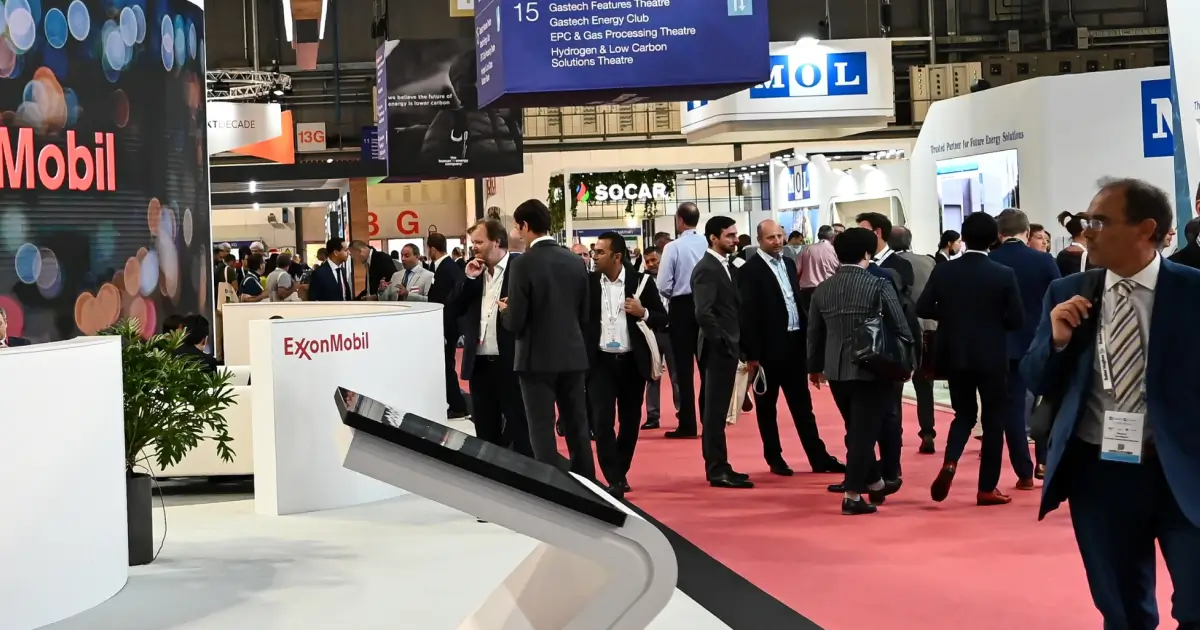
Capture at exhibitions works when you match the method to the moment and remove friction between interest and contact entry. Below are 15 distinct, practical capture methods, each with an explanation of how it works, why it converts, and implementation tips that you can use the next time you staff a booth.
Display a prominent QR code that opens a mobile-optimized landing page or prefilled form.
Scans are frictionless and familiar, allowing attendees to convert without needing to talk or provide a paper card.
Tips: Put the code on multiple surfaces at eye level, include a short CTA like “Scan for the quick demo,” and use UTM parameters so every scan maps back to the event and booth rep.
A single-purpose page built for small screens, with a short form and clear value exchange.
Mobile pages reduce abandonment and improve completion rates because fields are concise and actions are obvious.
Tips: Limit the form to three fields, preload context via query strings from your QR or NFC tap, and test on the slowest connection you expect at the venue.
Attendees receive your contact data with a tap or scan and can save it instantly to their phone.
It replaces clunky exchanges with a single action, maintains consistent branding, and encourages follow-up because the contact is added to the attendee’s address book.
Tips: Provide both NFC and QR fallbacks, use a short branded URL on printed signage, and include a one-line value prop on the card so recipients remember why they saved it.
Reps use a dedicated app to scan badges, enter notes, and automatically push leads into the CRM.
It centralizes capture, enforces required fields, and removes manual entry work after the show.
Tips: Choose apps with offline capabilities, mandatory qualification fields, and direct CRM connectors to maintain data hygiene in real-time.
A touchscreen walks visitors through a short survey, qualification questions, or content downloads that require an email to proceed.
Kiosks let multiple people self-serve while collecting structured lead data and consent.
Tips: Keep the flow under two minutes, add a staff assist mode for busy periods, and route high-score responses to sales as hot leads.
Ask attendees to post with a hashtag, tag your account, or sign up to enter a prize drawing.
It drives booth traffic, creates social proof, and collects opt-in contact info in exchange for entry.
Tips: Make the entry process simple, require an email to claim a prize, and use conditional logic to capture attendees' roles or areas of interest as part of the form.
Attendees tap an NFC tag or smart card to transfer contact info or trigger a landing page.
A single physical contact feels modern and fast, and taps can carry contextual metadata like rep ID or campaign source.
Tips: Place tags on high-traffic surfaces, preconfigure context parameters, and always provide a QR fallback for older devices.
Beacons detect nearby phones and trigger short messages or offers via the event app or an installed app.
It pulls passive foot traffic into active engagement when attendees are close enough to convert.
Tips: Use small, time-limited incentives to avoid spam complaints, and collaborate with the event app owner so messages arrive reliably.
Short, targeted surveys delivered via QR or link that ask 3 to 5 qualifying questions in exchange for a resource or discount.
Micro-surveys collect intent signals and tag leads by interest, making follow-up more relevant and effective.
Tips: Use branching logic to avoid irrelevant questions and return a value immediately, such as a downloadable one-pager or a discount code.
Attendees hand-write their details on a form or sign-in sheet.
Paper works when tech fails, and it engages people physically, which often strengthens the memory of the interaction.
Tips: Design forms that mirror CRM fields to simplify later entry, photograph forms each evening for backup, and rotate staff to enter data within 24 hours to preserve context.
A virtual boundary around the venue triggers targeted ads or messages when attendees enter the area.
It builds top-of-mind awareness and can direct people to your exact booth when combined with a timely offer.
Tips: Narrow your geofence to the hall to avoid wasted impressions, sync creative with onsite messaging, and measure lift by tagging responses to a campaign code.
Visitors take a branded photo that they can only download or share after providing their contact information.
It turns a playful activity into a lead magnet and generates shareable social content that spreads reach beyond the floor.
Tips: Make images event-ready with instant filters, require minimal fields to claim the photo, and follow up with the image as a personalized touchpoint.
Attendees play a quick game for a chance to win an immediate reward in exchange for entering contact details.
Gamification spikes participation and creates memorable moments that reinforce brand recall.
Tips: Ensure the prize structure rewards meaningful engagement, capture consent at registration, and log game responses as qualification data.
High-touch displays reveal premium content once the visitor signs up or authenticates with their card or badge.
It trades something compelling, like a product walkthrough or benchmark report, for data capture.
Tips: Keep the authentication step to one or two taps, bake lead fields into the session start, and use analytics to inform follow-up based on what content people view.
Offer an immediate benefit to attendees who refer colleagues to the booth and register on the spot.
Referred leads tend to convert faster, and you amplify reach through trusted introductions.
Tips: Use unique referral codes for tracking, give both referrer and referee a clear, immediate reward, and flag referred records in your CRM for priority outreach.
These 17 apps are practical tools you can use to turn booth conversations into CRM-ready leads. Each is listed with its primary function, key features, and exactly how it reduces friction between a meeting and a qualified opportunity. The apps are organized by how they help teams scale capture, qualify quickly, and push clean data into downstream systems.
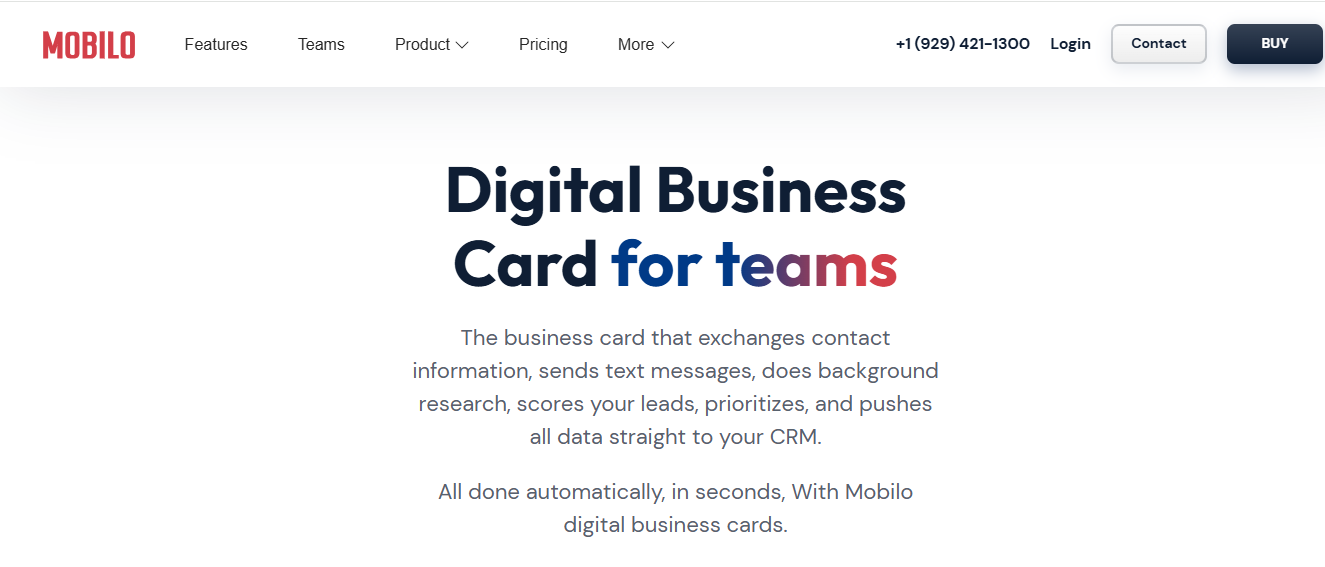
NFC/QR digital business card platform that routes contacts into CRM workflows.
Key features: NFC smart cards, QR fallback, Apple NameDrop support, card scanner, native CRM connectors, ICP builder, lead scoring, employee directory controls, and widgets for contextual landing pages.
A tap or scan becomes a structured lead record, with consistent field mapping and automated routing to reps or queues, thereby eliminating manual entry and enforcing company-wide data hygiene.
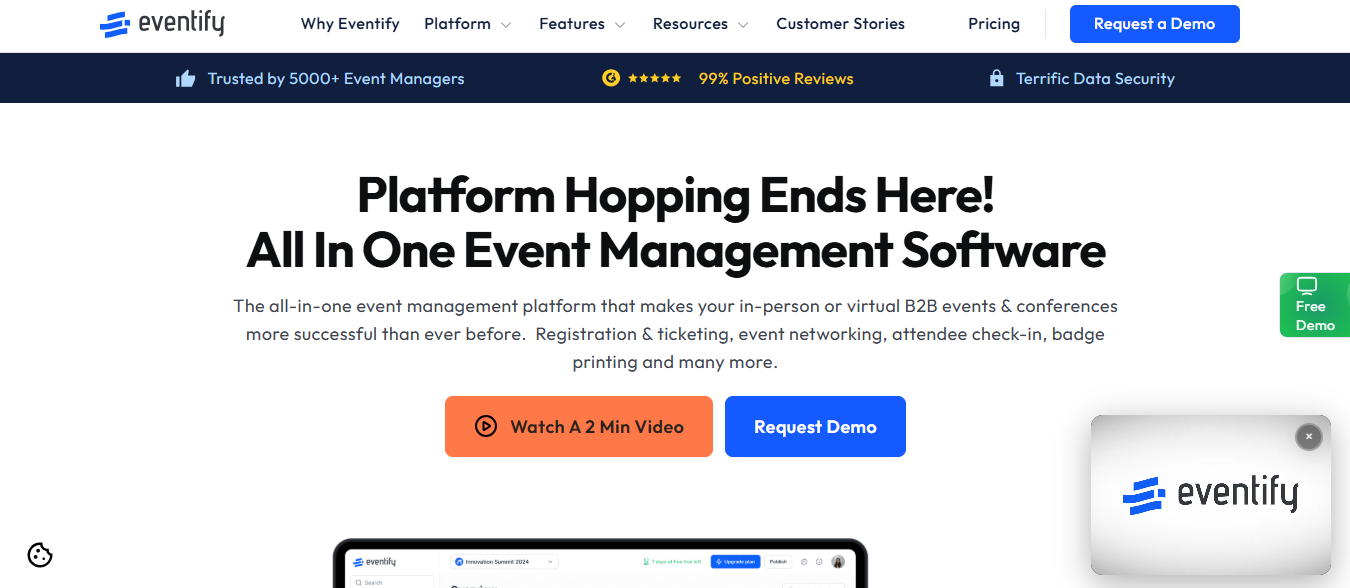
All‑in‑one event management and lead capture app for in‑person, virtual, and hybrid shows.
Key features: Self-check-in with custom badges and QR codes, agenda and speaker management, live polling, attendee networking, lead tracking, CRM export, branded email templates, and cross-platform support.
It consolidates registration, badge read, and follow-up templates into a single dashboard, enabling exhibitors to capture consented data at the point of contact and export CRM-ready lists without reconciliation.

Customizable event engagement platform with registration and lead retrieval.
Key features: Mobile landing pages, registration forms, QR/e‑ticket check‑in, business card scanning, live analytics, Salesforce, and other CRM integrations.
Prebuilt registration flows and QR check‑ins ensure attendee context travels with the lead, reducing manual enrichment after the show.

Guest and attendee management with lead capture capabilities for exhibitors.
Key features: lead capture forms, lead scoring, customizable guest labels, advanced search filters, and CSV export for CRM imports.
It provides exhibitors with a structured, searchable lead database that teams can tag and prioritize immediately, eliminating inconsistent spreadsheet fields.

Qualification-first lead capture tool that integrates directly with Salesforce.
Key features: Pre‑qualification flows, barcode and NFC scanning, session check‑ins, real‑time availability updates, and automated lead routing to Salesforce.
Leads arrive already scored and routed into existing Salesforce workflows, so sales start with context and next steps rather than raw contact lists.
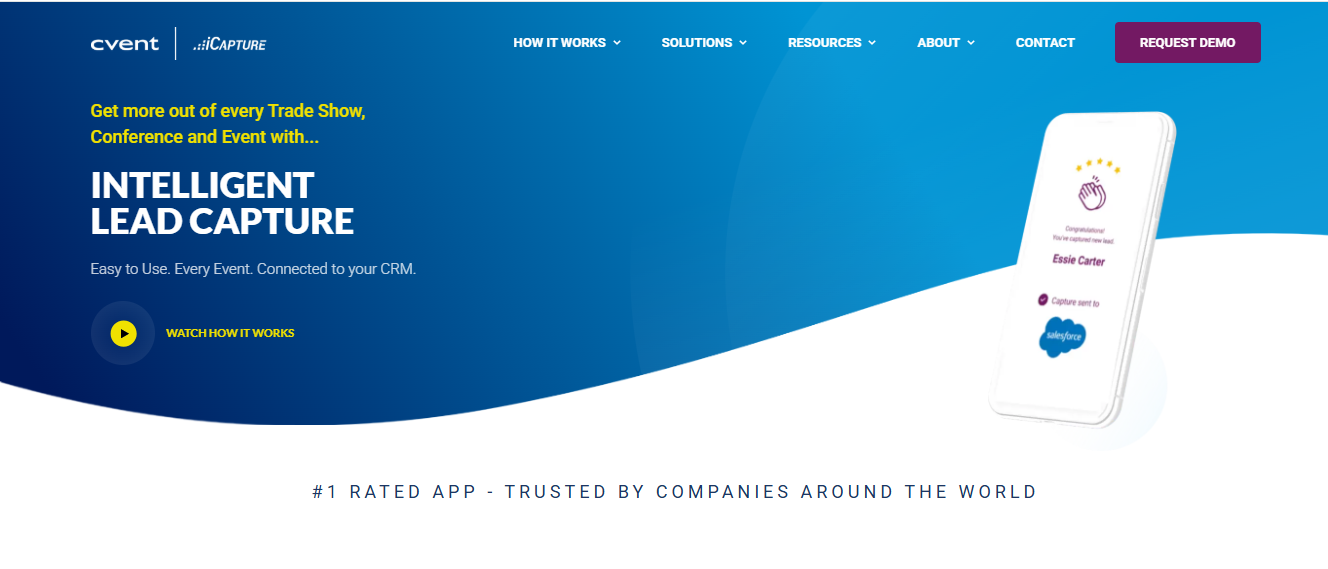
Offline lead collection with human-verified transcription of business cards and badges.
Key features: image capture, human transcription and verification, offline data storage, spreadsheet output, CRM connectors for Salesforce, HubSpot, and Pardot.
It reduces OCR error rates by sending images to real transcribers, delivering clean records directly into your CRM, and eliminating hours of post-show corrections.
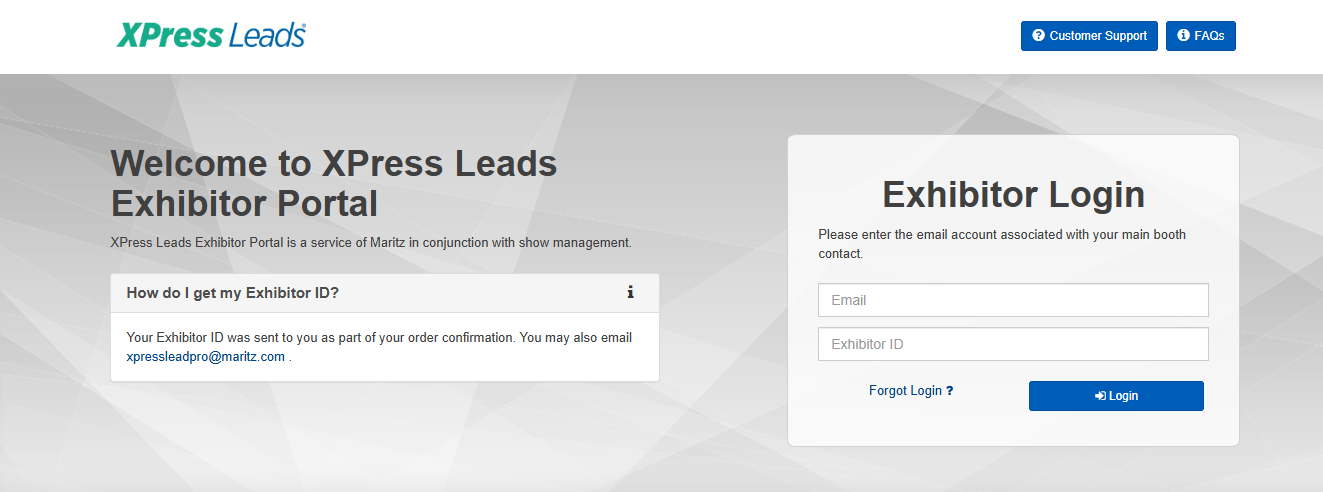
Lightweight badge and QR scanner that works offline and on rented devices.
Key features: Barcode/QR scanning, notes, lead rating, survey integration, appointment scheduling, offline capture, and device rental option.
Teams with spotty connectivity can capture complete leads and sync them when online. Additionally, the ability to add context notes reduces follow-up ambiguity.
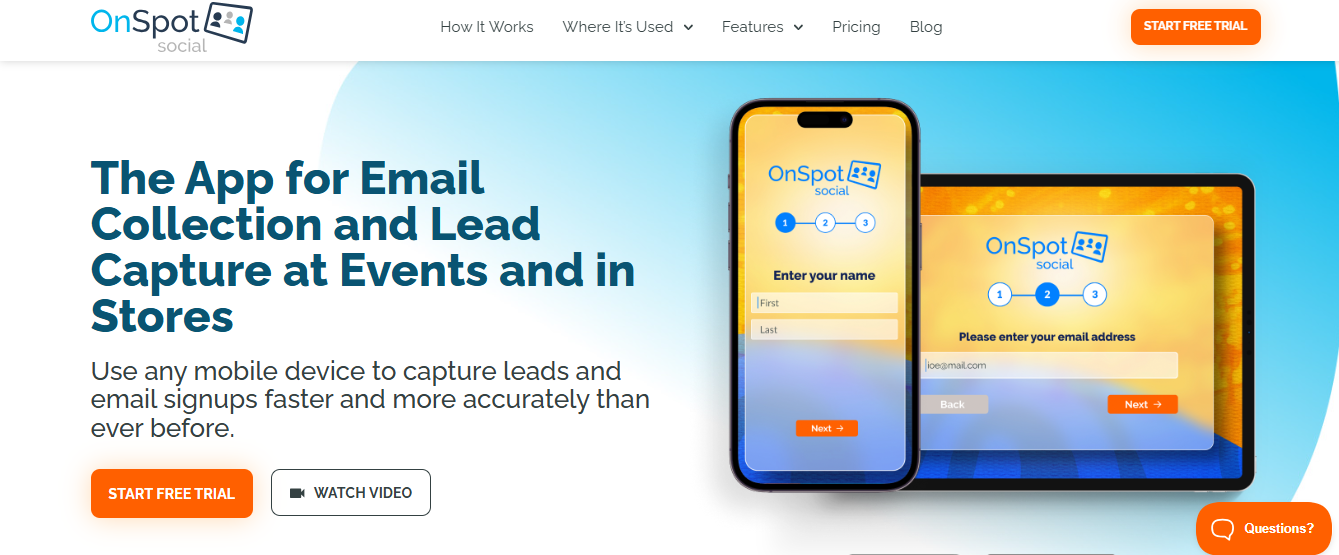
Customizable exhibitor‑facing lead capture with email marketing hooks.
Key features: Flexible form builder, offline capability, integrations with Mailchimp, AWeber, Constant Contact, and real‑time analytics.
Integrating directly into nurture tools enables exhibitors to begin tailored campaigns the same day, thereby shortening the time from contact to outreach.
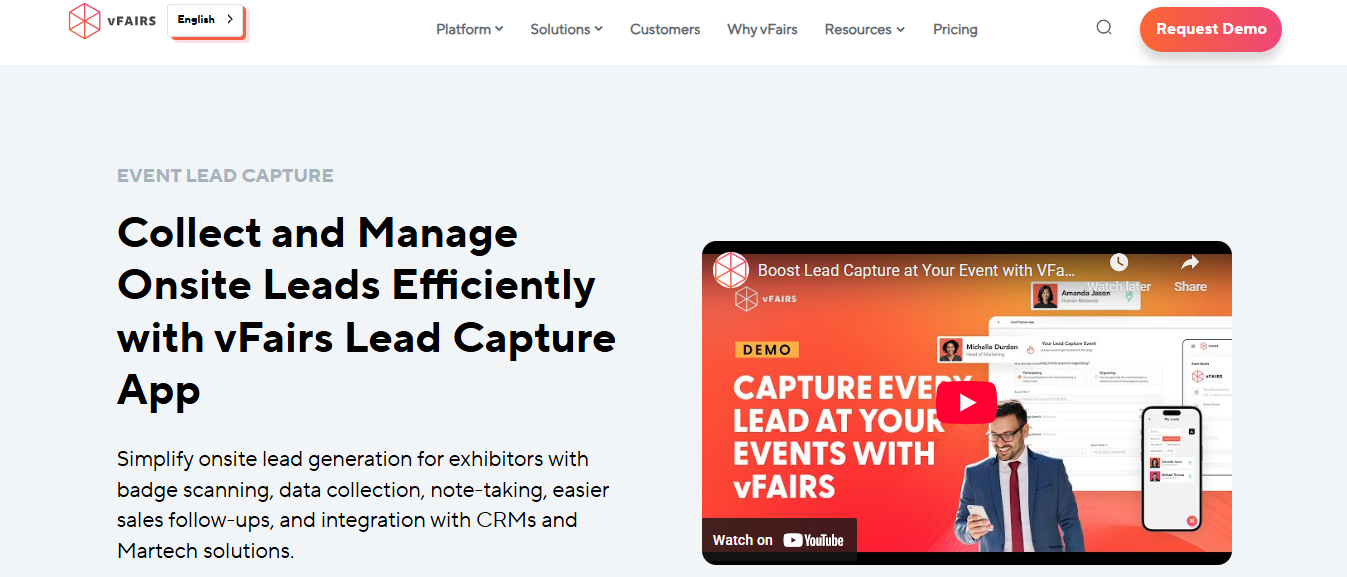
Enterprise-grade lead capture across virtual and in‑person touchpoints.
Key features: QR and badge scanning, business card OCR, tagging and voice-note context, multi-user team accounts, real-time CRM sync, and visual reporting dashboards.
It centralizes lead context and analytics, so event managers can assign follow‑ups by tag or score and prove exhibitor ROI without manual consolidation.

Robust lead retrieval built for large shows and enterprise exhibitors.
Key features: Badge and business card scanning, real-time qualification fields, on-demand export, protected data privacy, and performance tracking.
Exhibitors qualify and prioritize onsite, then export clean lists to CRMs, cutting the handoff time that typically creates opportunity leakage.

Event app with exhibitor tools for lead collection and networking.
Key features: QR code scanning, virtual business cards, SmartProfiles, searchable lead lists, and CRM export via integrations like Zapier.
SmartProfiles add behavioral context to a scanned lead, helping sales tailor outreach instead of sending generic follow-ups.
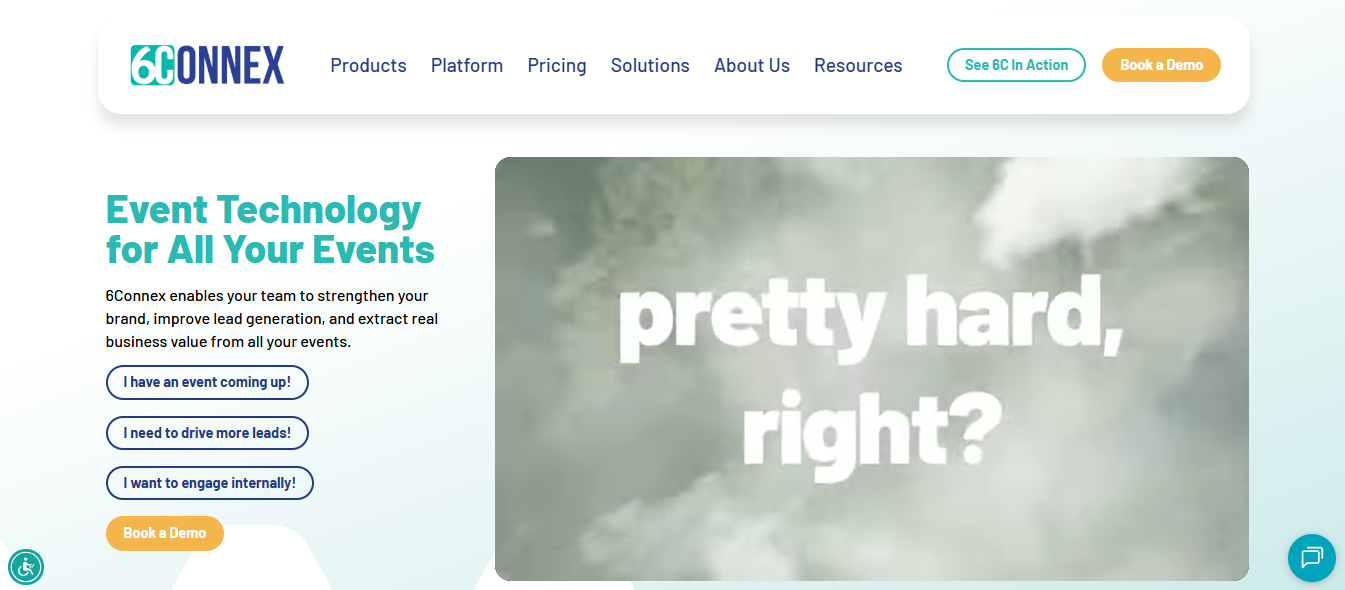
Badge scanning with a focus on privacy and integration.
Key features: QR/RID scanning, encrypted data storage, GDPR compliance, exports to Eloqua, Salesforce, and Marketo.
Secure scanning, along with direct connector options, reduces manual steps for compliance-sensitive programs.
The badge scanner was designed for rapid capture and categorization.
Key features: QR and 2D barcode reads, star rating system, capture of signatures and interests, CRM sync.
Quick rating and tagging during the conversation means sales gets prioritized lists instead of raw contacts to triage.

Lead capture and exhibitor management for bigger shows.
Key features: Badge/QR scanning, onsite demo booking, attendee networking, unlimited mobile app users, lead analytics.
It supports teams that run high‑volume staffing, tracking individual rep performance while routing hot leads into follow‑up queues.

Lead retrieval add‑on designed to collect and qualify leads fast.
Key features: QR scanning, custom qualification forms, built‑in lead counter, CSV export, basic reporting.
Quick scans with embedded qualification enable reps to filter high-intent onsite leads, and immediate export eliminates clerical handoffs.
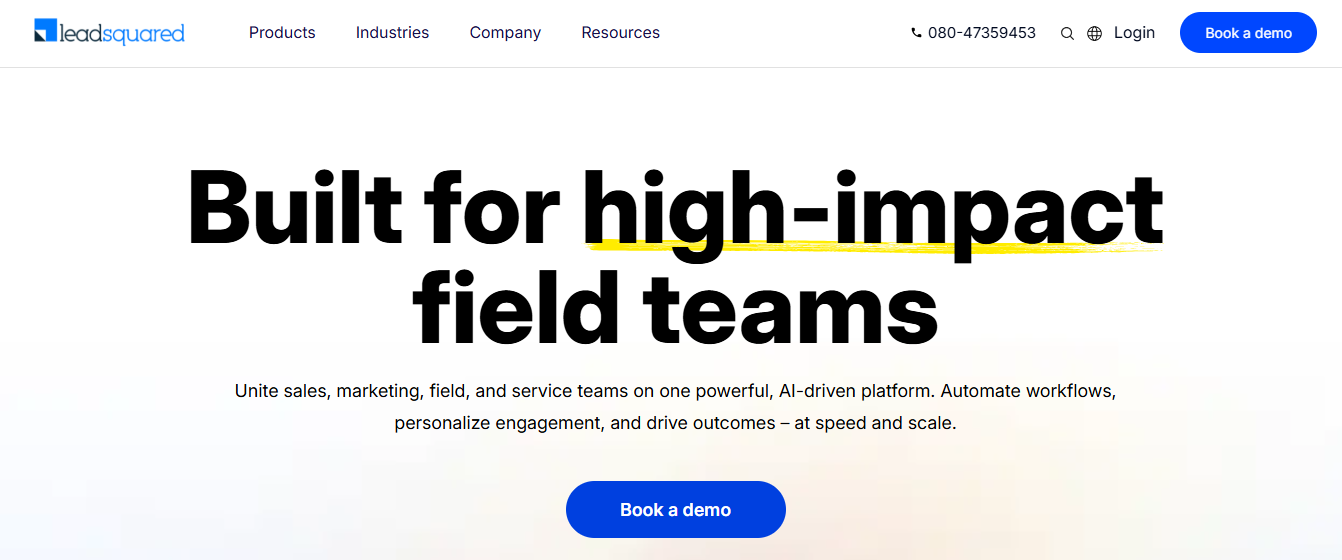
Event-focused CRM with capture and nurture built in.
Key features: Badge/QR capture, real‑time lead scoring, event workflows, CRM sync for Salesforce, HubSpot, and Pardot.
Leads arrive scored and queued for automated nurture, turning a list of names into sequenced campaigns without manual segmentation.
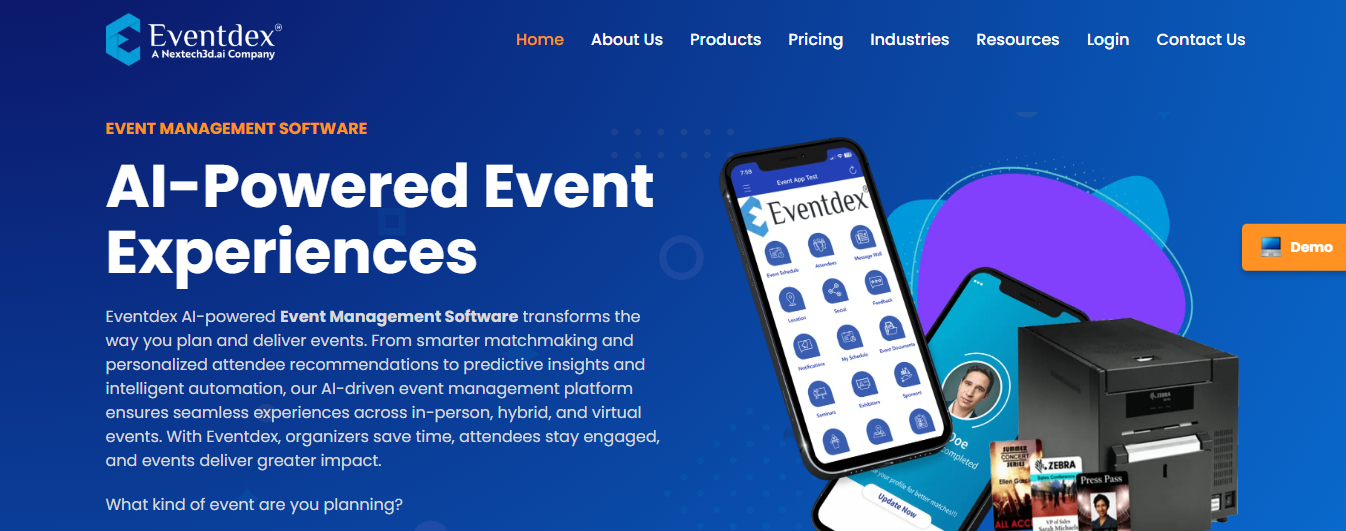
Practical lead scanning and event management for exhibitors.
Key features: Badge and QR scanning, custom lead scoring, analytics and reporting, CRM integrations.
It places qualification logic at the point of capture, so follow‑up lists are already prioritized and ready for sales action.
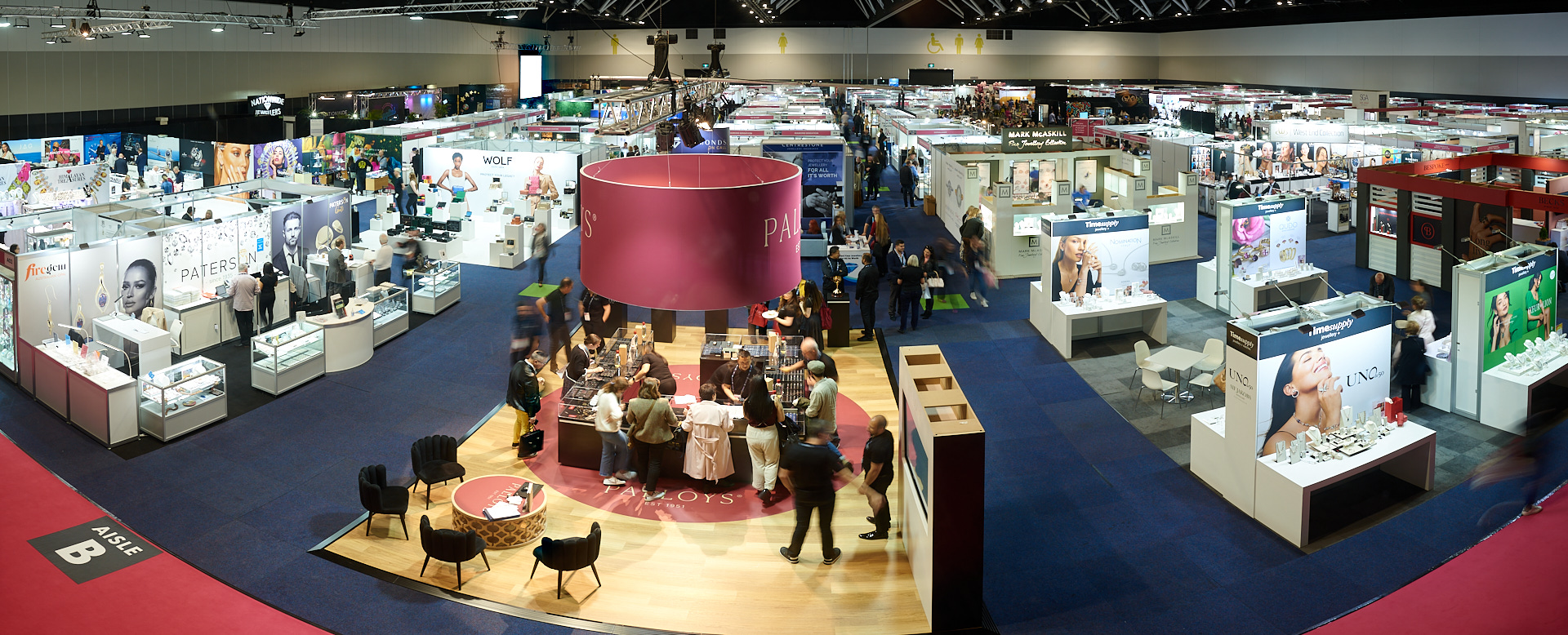
Tighten three key areas:
Do those three, along with your trade shows, stop being noisy one-offs and become repeatable revenue engines.
Start by mapping the ideal customer profile to specific capture fields in your CRM, then lock those fields as required so every lead has the minimum context sales need. Assign routing rules before doors open, not after, so territory handoffs do not rely on memory.
Run a short checklist with the team two days out. Confirm venue connectivity, pre-load enrichment keys, verify webhooks, and publish the exact follow-up templates that will be used.
Training matters here, but not as theory; the typical pattern I see is a slide-deck onboarding that leaves reps uncertain under pressure. So, replace one long presentation with three timed drills that replicate real booth flow, from a cold approach to a rapid qualification and a quick CRM push.
Give one person the explicit role of data quality officer for the event, with authority to reject incomplete entries and a clear SLA to resolve issues within 2 hours. Treat the booth like a triage tent. A greeter initiates the conversation, a qualifier captures the required fields, and a closer secures interest and schedules next steps.
Use inline validation rules, duplicate detection at the point of entry, and an enrichment lookup to fill missing company metadata before the lead hits CRM. Do nightly reconciliation for multi-day shows so mistakes are corrected while memory is fresh, not after a week of cold calls.
Prioritize speed, but make it purposeful. Start with a one-click confirmation message within an hour, then a tailored asset within 24 hours that echoes the exact point of interest captured at the booth.
If a lead scores above a threshold, open an immediate booking window for sales; if the score is lower, enter a nurturing drip with content tied to the session or demo they requested. Test channel sequencing in small batches, comparing immediate SMS plus email against email-first flows, and measure lift by time to first positive response, not just open rates.
Track three operational KPIs daily during the event, such as median time from capture to first outreach, percent of leads with complete qualification fields, and conversion to qualified opportunity within 30 days. Conduct an after-action review within 72 hours to solidify lessons while memories are still fresh.
Use small experiments from show to show, and always A/B the first-touch creative and CTA. Remember, capture tech is not just convenience; it changes outcomes. Trade show leads are 34% more likely to convert than leads from other sources, which is why measuring conversion by source matters significantly for attribution and budget decisions.
Frame return as conversion delta and reduced follow-up load. Measure incremental conversion lift from automation and enrichment, then compare to the cost of manual cleanup and missed responses.
When you reduce duplicate entries, streamline outreach, and automatically enrich records, sales teams spend more time selling. That is why tools matter, and why adoption should be measured by downstream conversions, not the number of taps.
In fact, companies that use lead capture technology see a 30% increase in lead conversion rates, making the business case straightforward if you track the right metrics.
I know how frustrating it is to leave an event with a pocket full of paper and no clear next steps. Consider Mobilo, a combined NFC and QR digital business card system that turns a tap or scan into CRM-ready, scored leads and can generate 10 times more leads at every event.
Join over 59,000 companies using automated contact exchange, lead enrichment, ICP scoring, and direct CRM sync, and book a demo to claim your first 25 cards free, a $950 value, because when 90% of business contacts never make it into your CRM, you can't afford to keep using paper.